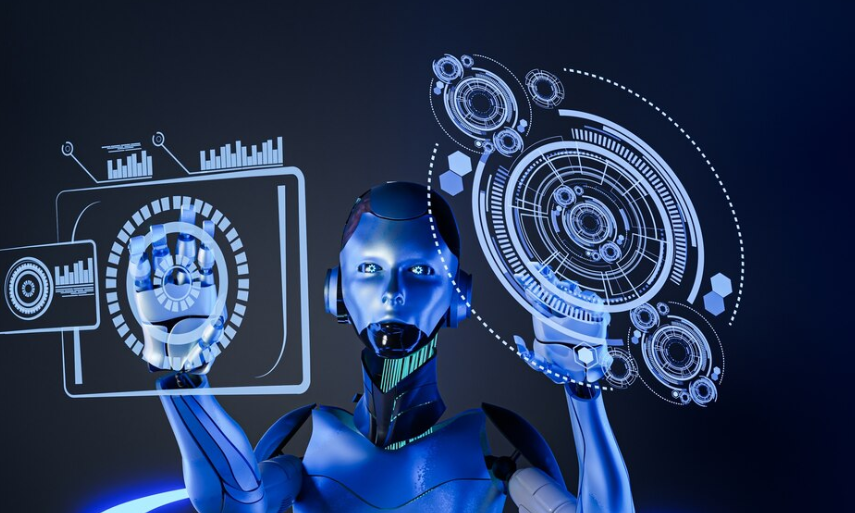Nos últimos anos, o Big Data tem transformado radicalmente como organizações e governos tomam decisões. Além disso, a capacidade de coletar, processar e analisar volumes massivos de informação em tempo real vem impulsionando a transformação digital em setores tão diversos quanto finanças, saúde e urbanismo inteligente.
Por conseguinte, é essencial compreender não somente o que define esse fenômeno, mas também como o explorar estrategicamente para obter vantagem competitiva.
Neste artigo, exploraremos os principais aspectos do Big Data, casos de uso e recomendações para uma implementação responsável e eficaz.
O que é Big Data?
Big Data refere-se a extremamente conjuntos de dados grandes e complexos que as ferramentas de processamento tradicionais não conseguem lidar com eficiência. É caracterizado pela 3 contra:
- Volume — grandes quantidades de dados gerados a cada segundo a partir de fontes como mídias sociais, dispositivos IoT e transações on-line;
- Velocidade — os dados são produzidos e analisados em tempo real ou quase em tempo real;
- Variedade — os dados vêm em formatos estruturados (bancos de dados), semiestruturados (JSON, XML) e não estruturados (texto, imagens, vídeos).
Com os avanços na computação em nuvem e na IA, as empresas agora podem analisar Big Data para impulsionar a inovação e otimizar processos.
O impacto do Big Data nos negócios
Confira a seguir as principais informações sobre os impactos do Big Data nos negócios:
Tomada de decisão baseada em dados
Big Data permite que as empresas façam decisões em tempo real e baseadas em evidências, reduzindo riscos e melhorando a eficiência. Empresas como Netflix e Amazon use a análise de dados para personalizar recomendações de conteúdo e produtos, aumentando a satisfação do cliente.
Experiência aprimorada do cliente
Ao analisar o comportamento do consumidor, as empresas podem adaptar estratégias de marketing, prever as necessidades dos clientes e oferecer serviços hiperpersonalizados. Chatbots, recomendações baseadas em IA e publicidade direcionada são exemplos de como o Big Data melhora o engajamento.
Eficiência Operacional e Redução de Custos
Big Data ajuda as empresas a otimizar cadeias de suprimentos, gerenciar estoques e reduzir o tempo de inatividade por meio de análise preditiva. Os fabricantes usam Sensores IoT para monitorar máquinas e prevenir falhas, economizando custos com reparos e atrasos na produção.
Detecção de Fraude e Cibersegurança
As instituições financeiras e as plataformas online utilizam Big Data para detectar atividades suspeitas e prevenir fraudes. Algoritmos alimentados por IA analisar transações para identificar anomalias, reduzindo riscos financeiros e aumentando a segurança.
Inovação e Vantagem Competitiva
Startups e empresas aproveitam o Big Data para identificar tendências de mercado, desenvolver novos produtos e obter vantagem competitiva. Empresas como Tesla usar dados de carros autônomos para melhorar os sistemas de direção autônoma.
O impacto do Big Data na sociedade
Qual é o impacto do Big Data na sociedade? Confira a seguir alguns dos principais aspectos:
Saúde e Pesquisa Médica
Big Data está revolucionando a saúde ao permitir detecção precoce de doenças, medicina personalizada e diagnóstico baseado em IA. Pesquisadores médicos analisam dados genômicos para desenvolver tratamentos para doenças como câncer e doenças raras.
Cidades Inteligentes e Planejamento Urbano
Os governos usam Big Data para melhorar gestão de tráfego, eficiência energética e segurança pública. As iniciativas de cidades inteligentes integram sensores IoT para monitorar os níveis de poluição, otimizar o transporte e melhorar os sistemas de resposta a emergências.
Educação e E-Learning
Big Data permite experiências de aprendizagem personalizadas, plataformas educacionais adaptáveis e acompanhamento do desempenho dos alunos em tempo real. Universidades e plataformas de aprendizagem online analisam dados para melhorar os métodos de ensino.
Redes Sociais e Opinião Pública
As plataformas de mídia social geram grandes quantidades de dados, influenciando campanhas políticas, movimentos sociais e tendências de consumo. No entanto, preocupações, desinformação e privacidade de dados levaram a debates sobre o uso ético de dados.
Pesquisa Ambiental e Climática
Os cientistas usam Big Data para estudar padrões climáticos, rastrear o desmatamento e prever desastres naturais. Os modelos de IA analisam imagens de satélite e dados de sensores para monitorar mudanças ambientais em tempo real.
Desafios e preocupações éticas do Big Data
Confira conosco a seguir, alguns dos principais desafio e preocupações éticas do Big Data:
Privacidade e Segurança de Dados
A recolha de dados pessoais levanta preocupações sobre violações de privacidade e acesso não autorizado. Regulamentos como GDPR (Europa) e CCPA (Califórnia) visam proteger os direitos dos consumidores, mas as violações de dados continuam a ser um risco significativo.
Preconceito e Discriminação
Algoritmos de IA treinados com base em dados tendenciosos podem levar a tratamento injusto em áreas como contratação, empréstimo e aplicação da lei. Garantindo modelos de IA justos e transparentes é crucial para prevenir a discriminação.
Uso Ético de Dados
Empresas e governos devem equilibrar tomada de decisão baseada em dados com considerações éticas, garantindo que os dados pessoais não sejam utilizados indevidamente ou explorados.
Gerenciamento e armazenamento de dados
Lidar com conjuntos de dados massivos requer infraestrutura de computação em nuvem, aumentando os custos e o consumo de energia. Data centers sustentáveis e métodos eficientes de processamento de dados são necessários para enfrentar esses desafios.
O futuro do Big Data
O futuro do Big Data está sendo moldado por avanços tecnológicos e mudanças nas demandas de negócios e sociais. A seguir, destacam-se as principais tendências que definirão o cenário do Big Data nos próximos anos:
Integração Avançada de IA e Machine Learning
A combinação de Inteligência Artificial (IA) e Machine Learning (ML) com Big Data está revolucionando como as organizações obtêm insights e tomam decisões. Essa integração permite:
- Capacidades preditivas aprimoradas: previsão de comportamentos de mercado, preferências dos clientes e gargalos operacionais com maior precisão;
- Automação de processos de dados: limpeza, estruturação e validação de dados automatizadas, acelerando fluxos de trabalho e reduzindo a intervenção manual.
Ferramentas como Apache Kafka e Apache Spark estão sendo amplamente adotadas para processamento de dados em tempo real, permitindo que as empresas ajam imediatamente com base nas informações geradas.
Processamento de Dados em Tempo Real
Em um mundo digital acelerado, a capacidade de processar e analisar dados em tempo real tornou-se essencial. As empresas estão investindo em pipelines de dados em streaming para casos de uso como:
- Análise em tempo real: possibilitando decisões instantâneas com base nos dados gerados;
- Experiências personalizadas para o cliente: recomendações e interações adaptadas em tempo real;
- Solução proativa de problemas: identificação imediata de falhas ou ameaças, minimizando riscos e tempos de inatividade.
A integração de dados em tempo real é crucial para a evolução da IoT e da IA, onde dados recentes aprimoram a precisão de modelos e aplicações.
Computação de Borda (Edge Computing)
A computação de borda está ganhando destaque ao permitir o processamento de dados próximo à fonte de geração, reduzindo a latência e melhorando a eficiência. Isso é particularmente útil em aplicações que exigem decisões em tempo real, como veículos autônomos e dispositivos IoT.
Computação Quântica
A computação quântica promete revolucionar o Big Data ao permitir a análise de conjuntos de dados massivos com velocidades incomparáveis. Empresas como IBM e D-Wave estão explorando algoritmos quânticos para acelerar o processamento de dados complexos, beneficiando setores como finanças, saúde e logística.
Privacidade e Ética de Dados
Com o aumento da coleta e análise de dados, questões de privacidade e ética tornaram-se centrais. As organizações devem equilibrar a inovação impulsionada por dados com a proteção dos direitos individuais, adotando regulamentações rigorosas e práticas de segurança cibernética para garantir um ambiente de Big Data responsável e ético.
Adoção de Dados Sintéticos
Empresas líderes como Nvidia, Google e OpenAI estão utilizando dados sintéticos para treinar modelos de IA, especialmente quando há escassez de dados do mundo real. Essa abordagem permite a criação de cenários realistas para aprimorar a capacidade de aprendizado das máquinas, sendo fundamental para aplicações em robótica e veículos autônomos.
Convergência de IoT e Big Data
A integração da Internet das Coisas (IoT) com Big Data está abrindo novas possibilidades para a análise de grandes volumes de dados em tempo real. Setores como manufatura, saúde e transporte estão utilizando essa convergência para manutenção preditiva, otimização operacional e melhoria da experiência do cliente.
Democratização da Análise de Dados
Ferramentas de Processamento de Linguagem Natural (PLN) e análise conversacional estão tornando a análise de dados mais acessível, permitindo que usuários consultem e interpretem dados por meio de interfaces de voz ou chat. Plataformas como IBM Watson e Microsoft Power BI estão na vanguarda dessa tendência.
Crescimento do Mercado de Dados Alternativos
O mercado de dados alternativos, que inclui informações de geolocalização, imagens de satélite e recibos de cartão de crédito, está em expansão. Fundos de hedge e investidores estão aumentando seus orçamentos para adquirir esses conjuntos de dados, reconhecendo seu valor na análise detalhada de empresas e setores.
Desenvolvimento de Talentos em Big Data
À medida que o Big Data cresce, há uma demanda crescente por profissionais qualificados, incluindo cientistas de dados, engenheiros de dados e analistas. Organizações estão investindo em treinamento e desenvolvimento para construir uma força de trabalho capacitada, com ênfase em funções especializadas como ética de dados e narrativa de dados.
Conclusão
Big Data está impulsionando crescimento dos negócios, transformação social e avanços tecnológicos. Embora apresente oportunidades de inovação, abordar desafios éticos, de privacidade e de segurança é essencial para garantir o uso responsável dos dados. À medida que as indústrias continuam a adotar estratégias baseadas em dados, o papel do Big Data na definição do futuro só se tornará mais significativo.


